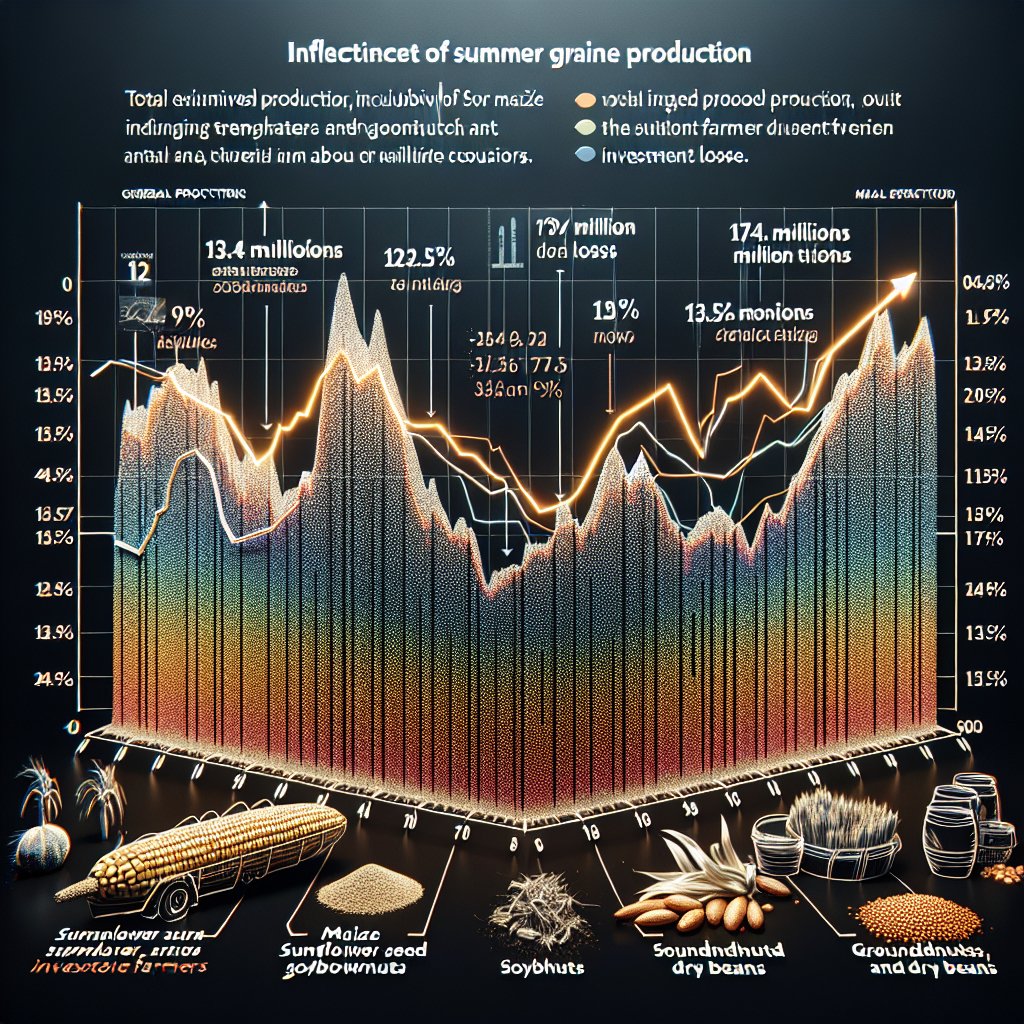Image created by AI
South Africa Faces Major Decline in Maize Production Amid Adverse Weather Conditions
South Africa's Crop Estimates Committee (CEC) has released distressing forecasts for the nation's staple crops. The committee predicts around a 12% decrease in South Africa's maize production for the year 2024. The first forecast paints a harrowing image not only for the maize crop but also for the broader summer grain sector, which is expected to experience a 13.5% production drop – a stark contrast to the previous season's bumper yields. The total estimated production for grains, including maize, sunflower seed, soybeans, groundnuts, sorghum, and dry beans, has been pegged at a little over 17.4 million tonnes, a significant decline from the 20.1 million tonnes reported in 2023.
Despite initial optimistic outlooks during the early summer, South Africa is feeling the harsh impact of the El Niño weather phenomenon. Once believed to dodge the bullet, the El Niño weather pattern has come into full effect, harming crops with higher temperatures and drought conditions in the vital grain belt.
This forecast is expected to have severe ramifications for the country, as maize is a critical staple and plays a central role in ensuring food security for millions. A reduction in maize availability could drive food prices upwards, exacerbate food inflation, and contribute to increased financial strain on consumers, particularly those in lower-income brackets.
Commercial farmers are facing the pressure of these environmental challenges. With the rise in the area planted with maize this season, expenses were high. Unfortunately, these investments are now set against the backdrop of a probable shortfall in harvest yields. While the decrease in production may trigger a rise in maize prices – providing farmers some margin protection – the downstream effects on consumer costs may be detrimental.
The country stands at a crucial moment. There is a pressing need for widespread rainfall to counter the existing detrimental conditions and salvage what can be of this season's yield. Analysts like Wandile Sihlobo, Chief Economist at the Agricultural Business Chamber, emphasize the critical nature of receiving these rains in the immediate time frame to prevent further forecast downgrades and ensure recovery of the crops.
Despite the gloomy forecast, it is projected that South Africa will maintain a positive maize balance for domestic needs and continue to be a net exporter. However, with commodity markets particularly sensitive to production volumes, the price dynamics are set to fluctuate, potentially impacting both national and regional markets.
Comparisons have been drawn to the 2016 El Niño spell, which culminated in a substantially reduced maize crop output of around 7.8 million tonnes. Though the implications of El Niño are less severe this time, the situation calls for vigilance and adaptive measures to mitigate the risks to the agricultural sector.










